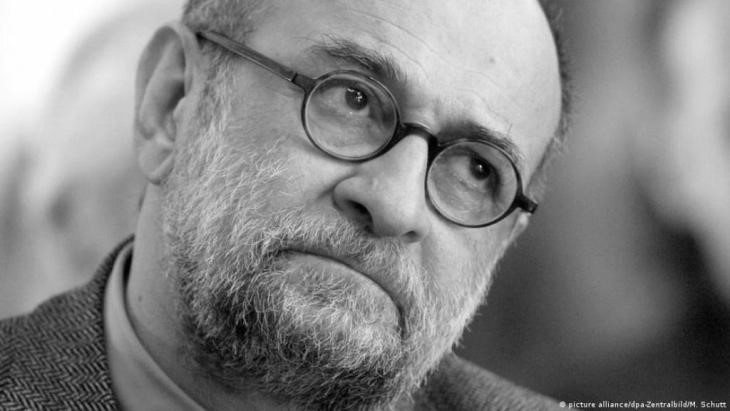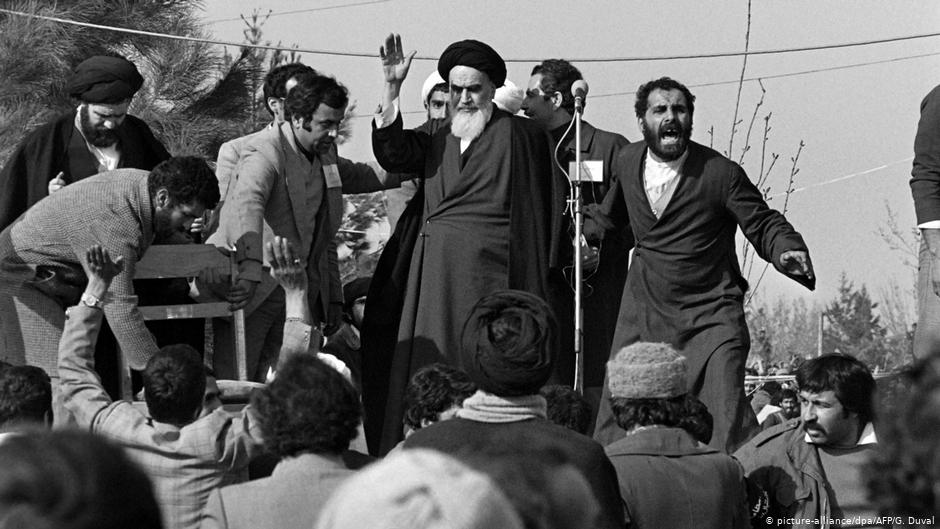Shout your names

SAID was a great poet, who never capitalised anything but his own name. And that was less a sign of hubris than of the will to self-assertion: "shout your names / loud and clear – for here, / in the slave market, / they auction off / the silent ones."
SAID was one of the first generation of German authors who were not native speakers of the language, but still managed to make a name for themselves and their work in the German literary scene – a long and arduous path. Born in 1947 in Tehran, he was the son of an officer, and was given the middle-class name Said Mirhadi. He was sent to study in Germany in 1965: "then life landed me here, at the age of 17, like a child carried off as it sleeps," he wrote in an autobiographical text.
Changing languages
In Germany, he "awakened" to find himself in the midst of the student movement, with unprecedented freedoms and political protests, ignited by the country of his birth, of all places: Iran. The Shah’s visit on 2 June 1967 was a point around which the German student movement crystalised. Said the student became a political poet, who tirelessly denounced the dictatorship in his country, at first that of the Shah, then of the Mullahs. And very soon, he was doing so in German rather than Persian: "in our barren exile / no one wanted my persian poems. / battle songs were the only / fashion in our circle - / so i sought refuge / in the german language; / and it took me in / as hospitably as it could."
When the Shah was toppled in 1979, SAID went back to Iran. He was quicker than others to see that the country was heading for another dictatorship – only this time, a religious one – and returned to Germany after just six weeks. And with that, his exile became permanent. In one collection of poems, SAID quotes Jean Amery’s realisation "that there is no return, because re-entering a space never means regaining lost time."

Against oriental cliches
SAID was sparing in his use of metaphors. He loved Persian literature and cultivated his native language, reading the old poets as well as the newest, with whom he was often in contact. But he never served the familiar cliches about the floweriness of oriental poetry. His German – hard, cold, cutting – was the opposite of the infatuation with language that shapes some Persian poetry to this day. Linguistic sobriety, though with a more playful edge, is also the hallmark of his prose and essays, which in recent years gained the upper hand over the poetry. They include the beautiful volume of "stories about pictures" ("The red smiles, the blue is silent") and a book with a Rilke-esque title about "this animal that does not exist" – a linguistic kaleidoscope in which the cliches and empty words of present-day German are taken to the point of absurdity.
Political engagement
SAID played a life-saving role for many authors as a member of the committee and then as president of German PEN between 1995 and 2002. During that period, in the late 1990s, there was a series of murders and attempted murders of authors and intellectuals in Iran. Over those years, he became a dangerous opponent of the regime, and saw himself threatened by agents of Iran, for which reason he kept his address a secret. For a long time, meeting with him had a conspiratorial feeling about it.
Being on a war footing with the Iranian regime and politicised Islam, however, didn’t mean that he glorified Germany or the West: "how often do i hear this stock phrase – mostly said with an unbearably patronising pathos: ‘there was no enlightenment in the orient, that is its plight.’ germany discovered the enlightnment for itself very early – not least through the writings of immanuel kant – and it still murdered 6 million people. [...] so anyone who claims enlightenment necessarily leads to tolerance is merely underlining his naivety."
Insistence on foreignness
This stance was never going to make SAID popular, but he was awarded numerous honours, including the Adalbert-von-Chamisso-Preis in 2002. He retained his pride, kept smoking without feeling guilty about it even after a major heart operation in the early 2000s, and remained in the double exile of a person who sees "naively" adopting a new country or a new language as capitulation. "where i die is my foreign land" is the title of one of his best-known poetry collections.
Last Saturday, SAID died of a heart attack at the age of 73, in Munich, where he had lived ever since coming to Germany. He will remain a role model to all those who don’t want to settle on a single, unambiguous identity.
© Qantara.de 2021
Translated from the German by Ruth Martin
Stefan Weidner is an author and Islamic Studies scholar.
